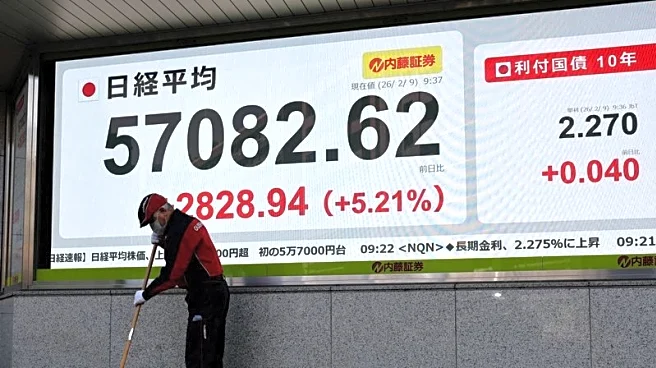Rapid Read • 6 min read
The U.S. has imposed a 30% import tariff on South African products, affecting industries such as citrus and table grapes. Louw Pienaar, a senior analyst at the Bureau for Food and Agricultural Policy, discussed the implications at a recent industry event. While the tariff poses immediate challenges, historical trends suggest it may not be permanent. The tariff impacts specific sectors, particularly those exporting to the U.S., but broader agricultural industries like poultry and maize remain largely unaffected. The tariff is part of broader geopolitical tensions and trade negotiations under President Trump's administration.
AD
The increased tariff could disrupt South Africa's agricultural exports to the U.S., affecting revenue and market access for specific products. This situation highlights the volatility of international trade and the impact of political decisions on global markets. South African farmers may need to explore alternative markets or adjust their strategies to mitigate losses. The tariff also underscores the importance of trade agreements and the potential consequences of geopolitical tensions on economic relations.
South African farmers and industry leaders may seek to negotiate with U.S. counterparts or explore new markets to offset the impact of the tariff. The situation could lead to increased diplomatic efforts to resolve trade tensions. The agricultural sector may also focus on improving efficiency and reducing costs to remain competitive. Long-term, the tariff could influence trade policy discussions and future agreements between the U.S. and South Africa.
AD
More Stories You Might Enjoy












